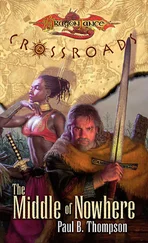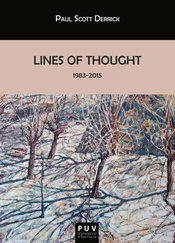Paulo Scott - Nowhere People
Здесь есть возможность читать онлайн «Paulo Scott - Nowhere People» весь текст электронной книги совершенно бесплатно (целиком полную версию без сокращений). В некоторых случаях можно слушать аудио, скачать через торрент в формате fb2 и присутствует краткое содержание. Год выпуска: 2014, Издательство: And Other Stories Publishing, Жанр: Современная проза, на английском языке. Описание произведения, (предисловие) а так же отзывы посетителей доступны на портале библиотеки ЛибКат.
- Название:Nowhere People
- Автор:
- Издательство:And Other Stories Publishing
- Жанр:
- Год:2014
- ISBN:нет данных
- Рейтинг книги:3 / 5. Голосов: 1
-
Избранное:Добавить в избранное
- Отзывы:
-
Ваша оценка:
- 60
- 1
- 2
- 3
- 4
- 5
Nowhere People: краткое содержание, описание и аннотация
Предлагаем к чтению аннотацию, описание, краткое содержание или предисловие (зависит от того, что написал сам автор книги «Nowhere People»). Если вы не нашли необходимую информацию о книге — напишите в комментариях, мы постараемся отыскать её.
Driving home, law student Paulo passes a figure at the side of the road. The indigenous girl stands in the heavy rain, as if waiting for something. Paulo gives her a lift to her family’s roadside camp.
With sudden shifts in the characters’ lives, this novel takes in the whole story: telling of love, loss and family, it spans the worlds of São Paulo’s rich kids and dispossessed Guarani Indians along Brazil’s highways. One man escapes into an immigrant squatter’s life in London, while another’s performance activism leads to unexpected fame on Youtube.
Written from the gut, it is a raw and passionate classic in the making, about our need for a home.
Nowhere People — читать онлайн бесплатно полную книгу (весь текст) целиком
Ниже представлен текст книги, разбитый по страницам. Система сохранения места последней прочитанной страницы, позволяет с удобством читать онлайн бесплатно книгу «Nowhere People», без необходимости каждый раз заново искать на чём Вы остановились. Поставьте закладку, и сможете в любой момент перейти на страницу, на которой закончили чтение.
Интервал:
Закладка:
Many days passed (as in any relationship, theirs created its own idiosyncrasies). There had already been a fifth meeting and a sixth, this is now the seventh, when he picks her up on the road and, in the gap between her opening the door and sitting in the passenger seat, he says, ‘Saturday’s fucking awesome, isn’t it, Maína?’ and they look at one another without a couple’s complicity but a couple just the same, without his immediately noticing the lipstick on her mouth, the cosmetic pink. Unlike the other times, Maína doesn’t have the bag full of papers and magazines to show him what she has read, only the exercise book and the four-colour pen that he brought the last time they met, along with the packs of batteries for the radio cassette player and a pink leotard that he saw in the window of Petipá, the gym-wear shop at the top of Protásio Alves, and bought for her. The exercise book now has Maína’s handwriting in green, a colour that makes the letters on the paper look as if they haven’t been written, as if they could simply be wafted away. Paulo has brought bags of savoury snacks, cans of Budweiser, mineral water, cans of Coke; Maína’s crazy about soft drinks. They have a picnic. She has prepared two stories for him to write down. He says he’s all ears. She laughs at the all ears and, without hesitating over the inaccuracies, she starts to tell the tale she has imagined. The first story tells of all the fooling around that happened between Indian men and women in the days when the land had no owner. The other is about an old Indian woman who spent her days on the road gathering up loose pages from newspapers and magazines that had been carried over on the wind, until one day, the day she was bitten by a lizard who wore a blazer (that was the word Paulo chose), she built a bonfire with all the paper she’d collected, and when the flames had grown till they reached the height of a man, a man who could embrace her, she put them on and, hankering after an impossible kinship, disappeared. Maína gathers all her things up from the ground, waits for Paulo to finish writing. Almost twenty minutes later, he hands her the exercise book, she moves closer and contrives a kiss on the mouth, then takes her clothes off. She gets into the Beetle, straight onto the back seat, asks him to get in too. Paulo walks slowly towards the car, sits next to her. Maína tries to kiss him, he evades her. There are consequences, more than he could have foreseen. She says a few words in Guarani; he puts his arms around her. Then he takes off his t-shirt and gives it to her to put on. Silence and the impossibility of a conclusion, although the insistence and the doubts will no longer appear on the pages of the exercise book she has dropped on the grass.
* * *
Another day. Maína’s sisters cannot guess who the man is who’s getting out of the car with those plastic bags in his hands. He tries to talk to the older one, but she doesn’t understand what he’s saying. Maína recognises his voice, she comes out of the tent and, making no attempt to hide her happiness at seeing him, says she had only been expecting him in two days’ time. Paulo hands over the bags with packets of biscuits, cornflower snacks and soft drinks for her. ‘I’ve brought some junk food,’ he says. Maína wants to know what junk means. Without waiting for a reply she goes back to the tent. Paulo follows her. He goes into the tent and sees the straw mats covering the floor, the wooden crates with cleaning products, clothes, pans, everything improvised, a table with a stack of six Duralex plates, a can of cooking oil, a few opaque plastic tubs and a pot of cutlery on it. Maína arranges the soft drinks on the table, puts the plastic bags away in one of the wooden crates. She takes Paulo by the hand, leads him to the little wicker bench at the entrance to the tent, asks him to sit down for a moment, then she takes two aluminium mugs, opens one of the soft drinks, pours it, passes him the drink. She purses her lips tight showing her interest in knowing what has brought him here. He takes a sip of the drink. ‘I quit my job today. It’s a good place, I stayed to help and to learn. The bosses are good to me. They do me good. You understand? It’s just I’m not doing what I want to be doing. When I’m there I have to help people, people I don’t want to help. The bosses are going to give me some money, money that’s mine, and I was thinking of taking some of it and helping you. Except I don’t know how to help you. It’s not much,’ he says. Maína gets up, takes the mug from his hands, puts it down beside the wicker bench, calls her sisters over, tells them to give him a big hug. When it’s her turn to hug him, she lets slip, ‘We are together, and happy.’ (Paulo has had an argument in the office because, after some days, the lawyers told him that they were indeed going to halve the amount he received from the estate agency’s legal activities. This decision, which he felt was unfair, made him stand up and say he wasn’t going to work with them any longer, and demand that, within the new rules with the decreased percentage, they deposit an amount approximating what he would be receiving from the suits that are filed.) The smallest child sat on his lap without his noticing. He had headed over here out of sheer rage (in order to lessen his rage); gradually he realises what caused it. And — out of context — he replies to Maína: ‘Junk is a word for stuff that isn’t healthy, that has no value.’ Maína puts her arms around him, saying he can come back as often as he likes. ‘Things that have no value,’ she repeats, talking to herself this time.
In Porto Alegre there’s a traffic jam on Lucas de Oliveira. He’s nearly fifty minutes late. He goes into the hall, where there must be about a hundred people. A fellow party member from São Paulo who has come especially to contribute to the discussions around public policy in the multi-year plan (the city’s main piece of budgetary planning, which is due to be passed through to the Council Chamber shortly) gestures for him to come sit next to her, as she’s alone on a cushion for two. ‘Did I miss much?’ Paulo asks. ‘They’ve been rehashing that crazy argument about which journalist will take over the communications office … and’ — she whispers even more quietly — ‘they talked about the net that’s starting to close around the mayor.’ He settles as best he can, listens to the introductory remarks and, as soon as the opportunity arises, he asks to speak. The chair of the meeting replies that as soon as comrade Zezinho has finished reading the new framework for assigning senior roles between the different movements and the group of independents, he will have three minutes to do so. It’s the independents who are the real headache in this process of forming a government: they are militants who aren’t part of any party movement and as a result, when they get together, it takes them longer than any of the other groups to deliberate (on top of this, there’s the fact that the candidates they name are not accountable to anyone, since they don’t really have anyone above them). Twenty minutes go by, Paulo’s turn comes. He gets up, walks over to the table, hands the chair of the meeting a three-page document. He runs his hand over his head. ‘Comrades, the document I have just handed to comrade Alfredo is my statement of separation from the movement. Out of respect for some of you, I would like to take two minutes here to present its contents and the reasons for my leaving.’ Some were surprised but most already knew that Paulo was there to leave the organisation. ‘I am alarmed and … ’ — he takes on an expression of ecclesiastical seriousness — ‘even as an atypical militant, who has always needed the understanding of those who work with me, because I’m vain, I’ll admit, and hasty, I’ll admit, because I’m not the best example of determination and discipline, I’m truly concerned about the irrational ways in which the factions that dominate the party leadership have shown contempt for democratic debate, replicating the most odious practices of Stalinism. I want to make it absolutely clear to you: I don’t intend to repeat today that old lament of someone who has no idea of how difficult it is, the argument with the right, with the social democrats, with the media bosses, bankers, contractors, ruralists … I do know, however, that we can take a wrong turn at any moment, just as we’ve gone wrong before, and I think we need to acknowledge these mistakes … If we speak so much about freedom and the internationalisation of socialism and the emancipation of mankind, about the dignity of humanity, we should be guaranteeing the inclusion, the participation of all those who work, who make sacrifices for this, in our own decision-making processes. These decisions, the decisions we make that are the party’s decisions, have taken place behind closed doors, they have come about through manipulation, through intimidation, by patrolling the party conventions at voting time. I don’t see any sign of democracy, of the democracy that ought to be the foundation of what we do, at the root of everything. I’m troubled, ashamed, by our alliances, by the concessions, by all the turning a blind eye, that we’re establishing as standard practices of the Workers’ Party. And this is only one of the eight points in my document. Is this the politics of party building that we wanted? I say again: I’m ashamed of what we are becoming. Honestly, I do believe that some of us, some comrades who are in this room, feel like they own this party, they think they’re the enlightened masters of the party, behaving like great feudal overlords, like proper gang leaders. Our party wasn’t born to be like this. I’ve seen resentment, vindictiveness. I don’t like it, I don’t want to be a part of this process of division that is excluding the best in the militant movement, the most critical, those who are technically the most able, just the way Stalin did. Those who are in charge in the movement, and I’m fortunate that you are all here today, you ought to be behaving very differently from São Paulo, where those guys ram whatever they want down people’s throats; you ought to be behaving differently from the groups who do nothing but cheapen our arguments.’ He looks at his watch, concerned for his two allotted minutes. ‘To bring about revolution in the world we need to bring about a revolution in ourselves. It sounds naive, I know.’ He takes a deep breath, readying himself for his conclusion (and loses his thread just a little). ‘I say again. I look around me and I see people who should never have been part of the Workers’ Party, and not only are they in the Party but they’ve been calling the shots here ever since our win in the municipal elections. We were better off four years ago. I’m sorry, but that’s the way I see it. I hesitated about coming today, about being here, standing in front of you. I was afraid of being taken for a coward and even that I myself might judge myself weak, incapable of understanding the big picture, or history, weak for giving up on the struggle, but I want you to know, I’m not giving up, just the opposite … I wish you all luck.’ One of the two state deputies gets to his feet and suggests that Paulo, ‘as a vital partner in the strengthening of the Workers’ Party,’ might reconsider his position and first have a discussion with the members of his unit. Paulo thanks the chair, tells the deputy he has made his decision and sits back down next to the militant who’s come from São Paulo. The interventions continue as though the meeting had never been interrupted by Paulo’s speech. He feels relieved, believing he has spoken some truth, something that can move everyone present. After the excitement, they get caught up in a discussion of the agenda, and as the debates and speeches progress he is overtaken by a devastating feeling of not having the stomach to argue with them. Before the final decision is voted upon, without any gesture of goodbye to the woman sitting next to him, he stands up, and with his head lowered, his voice almost silent, he excuses himself again to anyone who might happen to be able to hear him and leaves the room with a strong sensation of having been discarded.
Читать дальшеИнтервал:
Закладка:
Похожие книги на «Nowhere People»
Представляем Вашему вниманию похожие книги на «Nowhere People» списком для выбора. Мы отобрали схожую по названию и смыслу литературу в надежде предоставить читателям больше вариантов отыскать новые, интересные, ещё непрочитанные произведения.
Обсуждение, отзывы о книге «Nowhere People» и просто собственные мнения читателей. Оставьте ваши комментарии, напишите, что Вы думаете о произведении, его смысле или главных героях. Укажите что конкретно понравилось, а что нет, и почему Вы так считаете.












